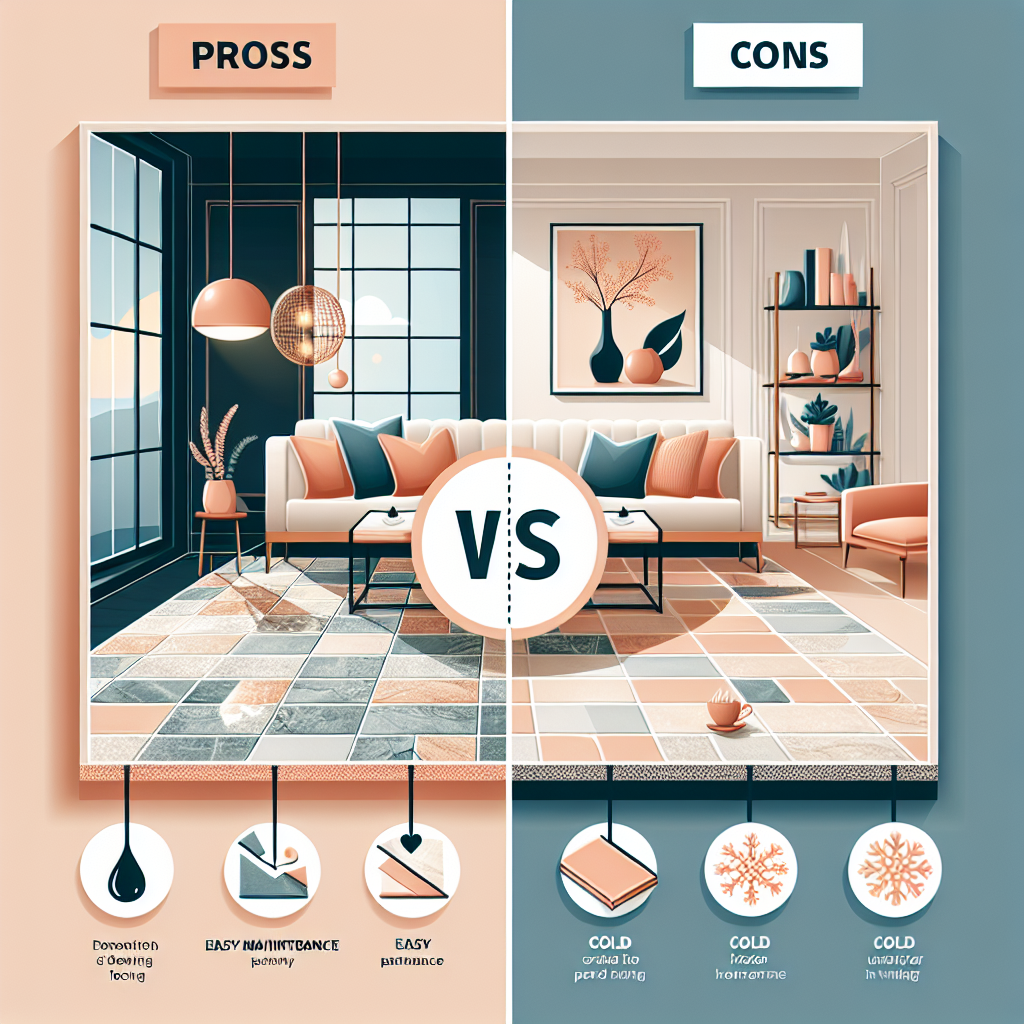Choosing the right flooring for your home is a significant decision, often influenced by aesthetics, functionality, and durability. One popular option that stands out is tile flooring. This article delves into the pros and cons of tile flooring, providing you with a balanced perspective to help you make an informed decision.
What is Tile Flooring?
Tile flooring is made from ceramic, porcelain, or natural stone and is available in an array of colors, shapes, and sizes. It is a versatile choice for various spaces, from kitchens and bathrooms to living rooms and entryways. Understanding its advantages and setbacks is critical when considering your options.
The Pros of Tile Flooring
1. Durability and Longevity
One of the most significant advantages of tile flooring is its durability. When properly installed and maintained, tile floors can last for decades. Unlike other flooring options, such as carpet or hardwood, tiles resist scratches, stains, and moisture, making them an ideal choice for high-traffic areas and humid environments.
2. Easy Maintenance
Tile flooring is incredibly easy to maintain. Regular sweeping and mopping are usually sufficient to keep tiles looking pristine. They do not harbor allergens or dust, which is particularly beneficial for families with allergies or asthma. A quick wipe can often resolve spills, making cleanup a breeze.
3. Aesthetic Versatility
With a vast array of colors, patterns, and styles, tile flooring can complement virtually any design scheme. Whether you prefer the rustic charm of natural stone or the sleek look of porcelain tiles, the variety allows you to express your personal style freely. Additionally, tile can mimic the appearance of wood or stone without the associated maintenance issues.
4. Temperature Regulation
Tiles can retain coolness, making them an inviting choice in warmer climates. Walking on a cool tile floor can be refreshing during hot summer months. For those living in cold areas, radiant heating systems can be installed beneath tile floors, providing cozy warmth during winter while maintaining the elegant aesthetic.
5. Increase in Property Value
Investing in quality tile flooring can enhance your home’s resale value. Potential buyers often appreciate the cleanliness and longevity associated with tile, which can be a considerable selling point.
The Cons of Tile Flooring
1. Hardness and Comfort
While the durability of tile flooring is a significant advantage, its hardness can be a drawback. Prolonged standing on tile floors may become uncomfortable for your feet and joints, especially in areas like the kitchen. Area rugs can help mitigate this issue, but they also require maintenance.
2. Coldness
In colder climates, tile can feel very cold during winter, which may lead to discomfort when walking barefoot. Though radiant heating can alleviate this, it does come with additional installation costs.
3. Installation Costs
Tile flooring may have a higher upfront cost when compared to other flooring options like carpet or vinyl. Professional installation is often recommended, especially for larger areas, which can add to the expense. However, considering its durability often means that it’s a worthwhile investment in the long run.
4. Slippery Surface
Depending on the type of finish, tile can be slippery when wet, posing a safety concern, particularly in bathrooms and kitchens. Non-slip tiles are available and should be considered for households with small children or elderly residents.
5. Grout Maintenance
While tiles are easy to clean, grout lines can collect dirt and grime over time, requiring more effort to keep clean. Regular sealing can help, but it’s an extra step that some homeowners may overlook.
Conclusion: Is Tile Flooring Right for You?
Tile flooring comes with a range of advantages that make it a suitable choice for many homeowners. Durability, ease of maintenance, and aesthetic versatility are compelling reasons to consider it for your living spaces. However, the potential discomfort of hard surfaces, the cost of installation, and the need for grout upkeep are important factors to weigh.
Ultimately, the decision of whether tile flooring is right for your home depends on your lifestyle, aesthetic preferences, and budget. Always consider consulting with a flooring professional to discuss your options and to ensure that you make the best choice for your home.
By understanding the pros and cons of tile flooring, you can confidently navigate your flooring choices, ensuring that your investment aligns with your long-term lifestyle and home goals.


